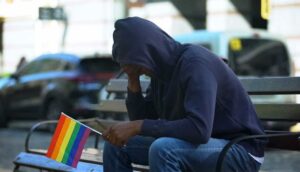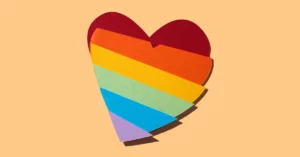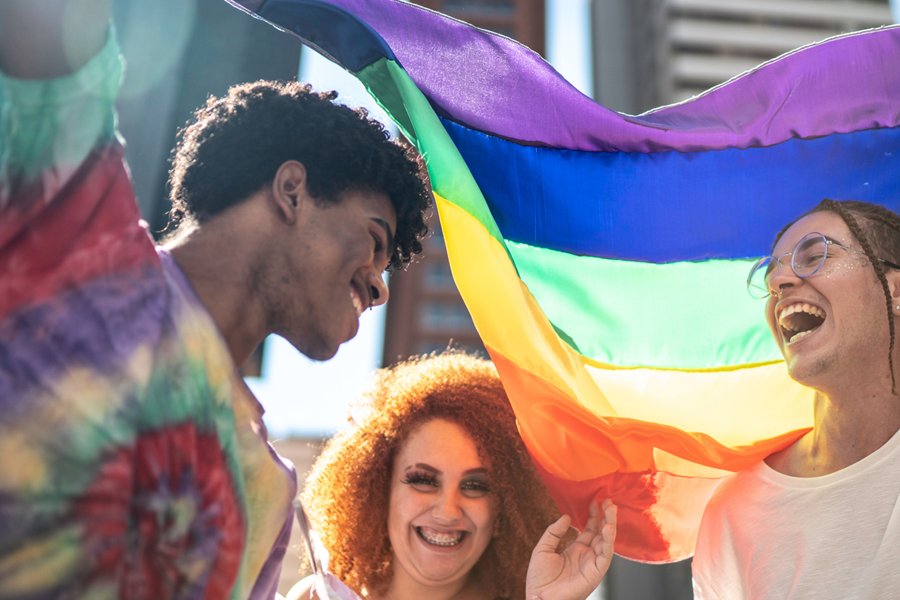For too long, individuals within the LGBTQ+ community have faced unprecedented struggles and adversities because of their sexual orientation or gender identity. Deeply rooted in societal norms, prejudices, and discrimination, these struggles have often led to negative impacts on their mental, emotional, and physical well-being. Our blog post today seeks to unravel the multi-faceted issue of LGBTQ+ discrimination, its impacts, and what remains to be done.
Contents
Understanding LGBTQ Discrimination
 Understanding LGBTQ+ discrimination involves recognizing the systemic and personal biases faced by individuals who identify as lesbian, gay, bisexual, transgender, queer, and other non-heteronormative identities. This discrimination often manifests in various forms. Many of these challenges are deeply rooted in cultural, religious, or personal beliefs. And that has historically marginalized these individuals. Also, stigmatizing them and casting them as “other”.
Understanding LGBTQ+ discrimination involves recognizing the systemic and personal biases faced by individuals who identify as lesbian, gay, bisexual, transgender, queer, and other non-heteronormative identities. This discrimination often manifests in various forms. Many of these challenges are deeply rooted in cultural, religious, or personal beliefs. And that has historically marginalized these individuals. Also, stigmatizing them and casting them as “other”.
Moreover, this discrimination is compounded when it intersects with other identities, such as race, religion, or disability— a concept known as intersectionality. For instance, a Black transgender woman might face discrimination not just for her gender identity, but also for her race. It’s important to understand that this discrimination has serious consequences. So, the fight against LGBTQ+ discrimination is not just about ensuring equality in legal rights, but also about fostering social acceptance and respect.
Forms Of Discrimination Against The LGBTQ+ Community
LGBTQ+ discrimination takes many forms, some overt and some subtle. Here are some key examples:
- Employment Discrimination
This can include unequal hiring practices, unfair treatment or harassment in the workplace, and dismissal based on a person’s sexual orientation or gender identity. In many places, there are not sufficient laws in place to protect LGBTQ+ individuals from such discrimination.
- Housing Discrimination
LGBTQ+ people are often denied housing or evicted based on their sexual orientation or gender identity. Landlords may also discriminate in renting or selling property.
- Healthcare Discrimination
This can range from denial of service or unequal treatment to lack of competent care due to healthcare providers’ biases or lack of understanding about LGBTQ+ health issues.
- Educational Discrimination
This includes bullying and harassment by peers, and discriminatory policies or practices by the school administration. And a lack of inclusive sex education or representation in the curriculum.
- Legal Discrimination
Many countries and states lack comprehensive anti-discrimination protections for LGBTQ+ people. Additionally, certain laws, like those criminalizing same-sex relationships, can explicitly target LGBTQ+ individuals.
- Social Discrimination
This encompasses a wide range of behaviors, from rejection by family and friends to hate speech, violence, and social exclusion. It can also include microaggressions—small, often unintentional slights that can be harmful over time.
- Conversion Therapy
Despite being discredited by major medical and psychiatric organizations, conversion therapy, a harmful practice attempting to change an individual’s sexual orientation or gender identity, is still legal in many places.
Understanding these forms of discrimination is crucial for identifying and combating them. And for fostering a more inclusive and equitable society.
Common Consequences Of LGBTQ Discrimination
 The consequences of LGBTQ+ discrimination are multifaceted and far-reaching, affecting individuals’ mental, physical, and social health, as well as their overall quality of life. Here are some significant impacts:
The consequences of LGBTQ+ discrimination are multifaceted and far-reaching, affecting individuals’ mental, physical, and social health, as well as their overall quality of life. Here are some significant impacts:
Mental Health Issues
LGBTQ+ individuals frequently encounter prejudice, bias, and discriminatory behaviors, which significantly contribute to stress and negative mental health outcomes. A report has stated that lesbian, gay, and bisexual adults are nearly twice as likely as heterosexual adults to experience a mental health disorder. Transgender individuals are also at high risk for mental health issues, with one study showing that about 39% of trans individuals reported serious psychological distress compared to only 5% of the general population. These issues can include:
- depression
- anxiety
- post-traumatic stress disorder,
- suicidality
The fear and anxiety of living in a hostile environment can severely impact an individual’s psychological well-being.
Substance Abuse
The added pressures and stressors faced by LGBTQ+ people can sometimes lead to higher rates of substance use as a coping mechanism. According to the Substance Abuse and Mental Health Services Administration (SAMHSA), sexual minorities were more than twice as likely as heterosexual adults to have used illicit drugs in the past year. Substance misuse can have serious health consequences, including:
- increased risk of overdose
- transmission of HIV or hepatitis
- worsening of mental health conditions
Physical Health Problems
The chronic stress caused by experiencing discrimination can have a significant impact on physical health. This may result in an increased risk of cardiovascular diseases, hypertension, and other stress-related conditions. Transgender individuals may face additional physical health challenges. For instance, they might delay or avoid seeking healthcare due to fear of discrimination, which can lead to unaddressed health issues. Inadequate access to gender-affirming treatments, such as hormone therapy, can also have severe physical and mental health impacts.
Social Isolation
Experiencing discrimination and rejection can lead to feelings of social isolation in LGBTQ+ individuals. It may begin with family rejection after coming out, resulting in some LGBTQ+ youth becoming homeless. Adults might be excluded from social activities or groups due to their sexual orientation or gender identity. Some individuals may choose to hide their identity to avoid these negative experiences, leading to feelings of isolation, living a double life, and the associated psychological stress.
Economic Disadvantages
Discrimination in the workplace, such as in hiring, promotions, or pay, can lead to economic instability and lower income for LGBTQ+ individuals. This, coupled with housing discrimination, can contribute to higher rates of poverty and homelessness within the community. A report has found that LGBTQ adults are more likely than their heterosexual, cisgender counterparts to live in poverty.
The same report also found that 30% of transgender individuals reported being homeless at some point in their lives. These economic challenges are further exacerbated for LGBTQ+ individuals who also belong to other marginalized communities, such as racial and ethnic minorities.
Decreased Quality of Life
The cumulative effect of discrimination, isolation, economic disadvantages, and health issues can significantly reduce the overall quality of life for LGBTQ+ individuals. They may constantly face stressful situations, from coping with the fear of coming out to dealing with outright hostility. This constant state of heightened stress and decreased social, economic, and health opportunities can lead to lower self-esteem, limited personal growth, reduced life satisfaction, and a general decrease in well-being.
Impaired Rights
Discrimination against LGBTQ+ individuals often translates into laws and policies that limit their rights. In many parts of the world, laws that criminalize same-sex relationships, restrict gender expression or fail to protect against discrimination in jobs, housing, and services seriously infringe upon the human rights of LGBTQ+ individuals. Legal discrimination can reinforce societal prejudices, further marginalizing the LGBTQ+ community and impeding their access to justice.
These consequences highlight the urgent need for societal, institutional, and legal changes to support and protect LGBTQ+ individuals. Ultimately, ensure their rights to dignity, equality, and a decent life.
Strategies To Deal With This Discrimination
 Addressing LGBTQ+ discrimination requires a multi-faceted approach, combining legal protections, societal change, and individual actions. Here are some strategies that can help:
Addressing LGBTQ+ discrimination requires a multi-faceted approach, combining legal protections, societal change, and individual actions. Here are some strategies that can help:
Policy Change and Legal Protections
Governments can introduce anti-discrimination laws that protect LGBTQ+ individuals in various sectors, including employment, housing, healthcare, and education. Legal recognition of same-sex relationships and self-identified gender identity can also be important steps forward.
Education and Training
Schools and workplaces should provide inclusivity training to foster understanding and respect for LGBTQ+ individuals. Comprehensive sexual education that includes LGBTQ+ relationships and identities can also play a crucial role in combating discrimination from a young age.
Support Networks and Services
LGBTQ+ individuals can benefit greatly from supportive communities, whether in-person or online. Counseling and mental health services, peer support groups, and community centers can provide vital resources and safe spaces.
Public Awareness Campaigns
Media campaigns can help raise awareness about the struggles faced by the LGBTQ+ community, challenge stereotypes, and promote acceptance. This can include sharing stories from LGBTQ+ individuals to humanize and personalize the issues they face.
Alliance Building
Allies, individuals who support and stand up for the rights of LGBTQ+ people, can play a significant role in fighting discrimination. They can use their privilege to amplify LGBTQ+ voices, challenge homophobic or transphobic behavior, and advocate for equality.
Global Cooperation
International bodies and human rights organizations can exert pressure on countries that criminalize homosexuality or otherwise infringe on the rights of LGBTQ+ individuals. They can also share successful strategies and resources to promote equality globally.
Self-Care and Mental Health Support
On an individual level, LGBTQ+ people can seek out supportive communities, therapy, and self-care techniques to deal with the stress of discrimination. It’s important to remember that seeking help is not a sign of weakness, but a form of strength and self-advocacy.
Addressing discrimination is not just the responsibility of the LGBTQ+ community but of society as a whole. Each one of us can contribute to a more inclusive, accepting, and equal world.
Conclusion
In conclusion, LGBTQ discrimination is a pervasive issue with serious implications for the mental, physical, and socioeconomic well-being of those affected. The various forms of discrimination span several aspects of life, including employment, healthcare, education, and social interactions, often leading to significant disadvantages and reduced quality of life. However, the situation is not without hope. Across the world, important strides have been made toward equal rights and protections for the LGBTQ+ community.
While there is still a long way to go, every step toward understanding, acceptance, and equality counts. By working together, we can build a world where everyone can live openly, authentically, and without fear. Let’s stand together for equality, justice, and love.
Life may sometimes be challenging for people from LGBTQ community, but Online LGBTQ Counseling can help. Get experienced LGBTQ therapists at PrideMantra: Book a trial LGBTQ therapy session


